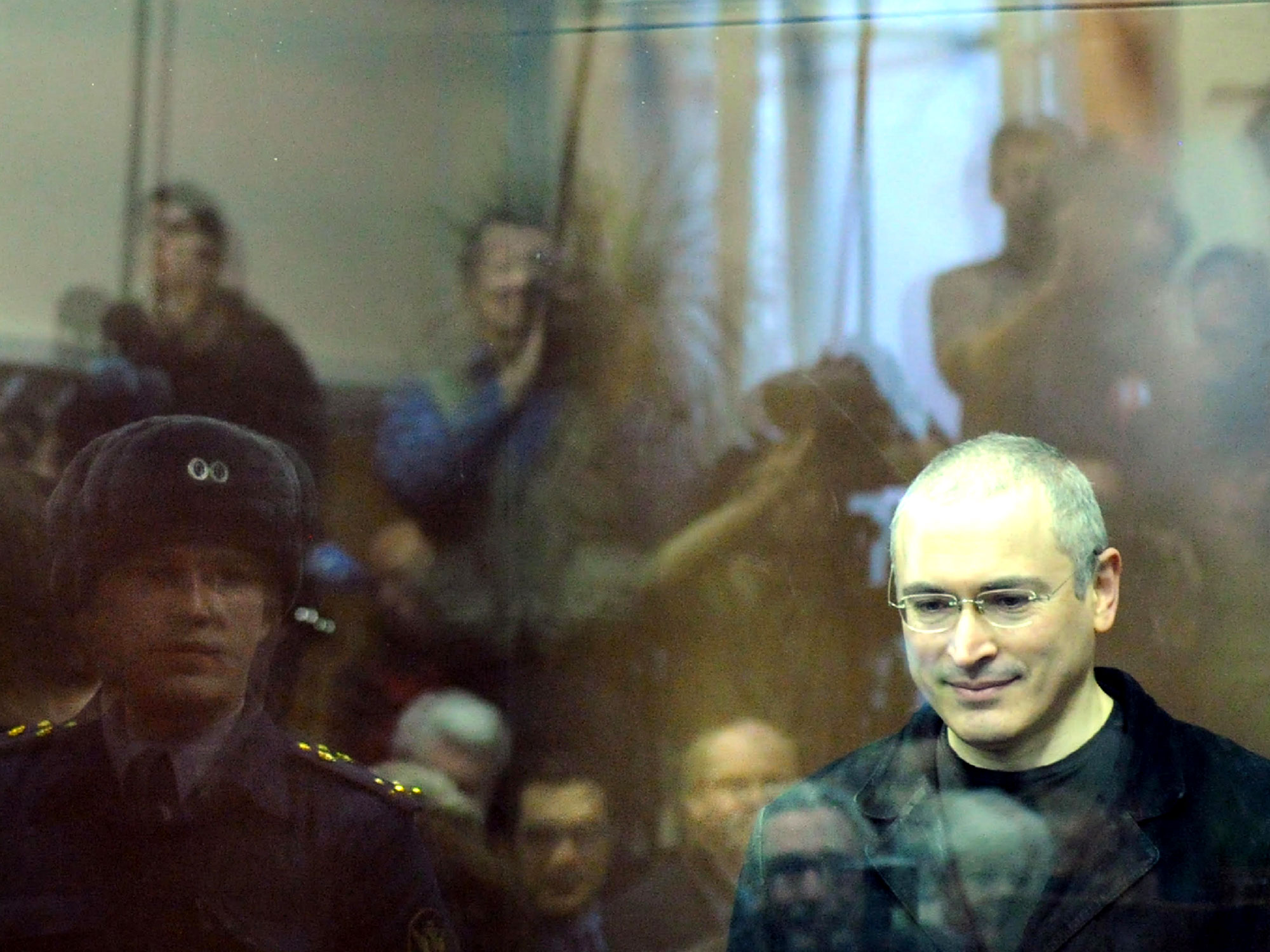
Given his uneven output of recent years – the Rolling Stone, Fela Kuti and Lance Armstrong films being cases in point – it is something of a joy (and relief) to find the Oscar-winning documentarian back firing on all cylinders and reconnecting with his political muse.
Using the journey of fallen oligarch Mikhail Khodorkovsky as a lens with which to explore the current state of Russia and its faux democracy – and in turn, America’s and our own – Gibney reasserts two of his most vital qualities – his impartiality and that fastidious fact-checking. The result is easily his best documentary in years.
Winning Khodorkovsky’s trust without compromising his own integrity – this is no Armstrong schmooze-fest – Gibney enlists the help of former BBC Moscow correspondent Martin Sixsmith in retracing the grim reality of Russia post-Glasnost. In the wake of the collapse of the Iron Curtain, the figure of Boris Yeltsin’s local hero loomed large, tearing down the wall to create a different sort of capitalism that was fatally flawed. Seven opportunistic businessmen quickly relieved dazzled Russians of their government-issued vouchers at bargain-basement prices, only to use them elsewhere to buy up the nation’s most lucrative companies. Gibney dubs it “gangster capitalism”. It left the few extremely rich and the many very poor.
Not long after, Khodorkovsky and the oligarchs controlled 50% of the Russian economy, including TV stations and oilfields. When a sick Yeltsin played a wicked game to stay in power, borrowing money from the oligarchs that his government couldn’t hope to repay, the malevolent seven reasserted their grip on power, halting any return to communism and ensuring misery for millions of everyday Russians.
As the richest of these infamous oligarchs, Khodorkovsky was on an unstoppable roll until the murder of a mayor in a far-flung oil town in Siberia raised questions. Khodorkovsky was accused of organising the hit to protect his Yukos oil business – the mayor was out to expose the company’s tax evasion – a charge that sticks with him today, leaving him in exile in London.
Despite losing his state assets to Putin – whom the oligarchs put in power to replace Yeltsin, only to see him turn against them – Khodorkovsky clearly banked a lot of money. With a sly twinkle, he doesn’t offer any real denial over the accusation, and the question of his involvement in the execution is left hanging, unanswered. Had he not gone after Putin’s administration for corruption, he’d probably still be living like a king in Russia.
Khodorkovsky’s own journey – from sociopathic businessman to incarcerated scapegoat to reformed criminal (he spent 10 years behind bars) – is told with panache and flourishes of whimsy. The film is rich in detail, yet is neatly presented as a political thriller, with Gibney and his conspirators (editor Michael Palmer, composers Robert Logan and Ivor Guest) on fine form. Ample footage of the farcical show trials of Khodorkovsky are here, as is the media’s coverage of Putin’s so-called “election theatre” campaign of recent years. Only a brief reference to the threat to U.S. democracy is needed to bring the reality of it home.
Today, as he approaches two decades in power, Putin has his own cronies in place (here referred to as “Oligarchs 2.0”). He’s been popular with the people for bringing the oligarchs to heel (Putin happily quotes Stalin to push the point home), yet a shift in public opinion sees a reformed Khodorkovsky emerge as an unlikely hero of the people, albeit with severely depleted influence. Putin, we are told, views Khodorkovsky as an equal, meaning the latter’s life remains in danger. Khodorkovsky believes Putin’s time in power is limited.
Like its subject, the film isn’t without its flaws. Gibney’s voiceover slips into cliché from time to time (“The darker the night, the brighter the stars,” he says at one point, referring to Khodorkovsky’s time inside). The contemporary narrative in London could also be more fully formed. And we don’t get to hear from Khodorkovsky’s family, despite them being referenced on occasion. But these are minor quibbles. Overall, Citizen K presents a wildly entertaining and timely picture of a global issue in as succinct a way as possible. It carries its universal themes efficiently without wearing them earnestly on its sleeve. At 65, Gibney, aka the hardest-working man in documentary filmmaking, just scored another home run.
The post Citizen K – first look review appeared first on Little White Lies.
![Forest Essentials [CPV] WW](https://s3-us-west-2.amazonaws.com/pcw-uploads/logos/forest-essentials-promo-codes-coupons.png)
0 comments